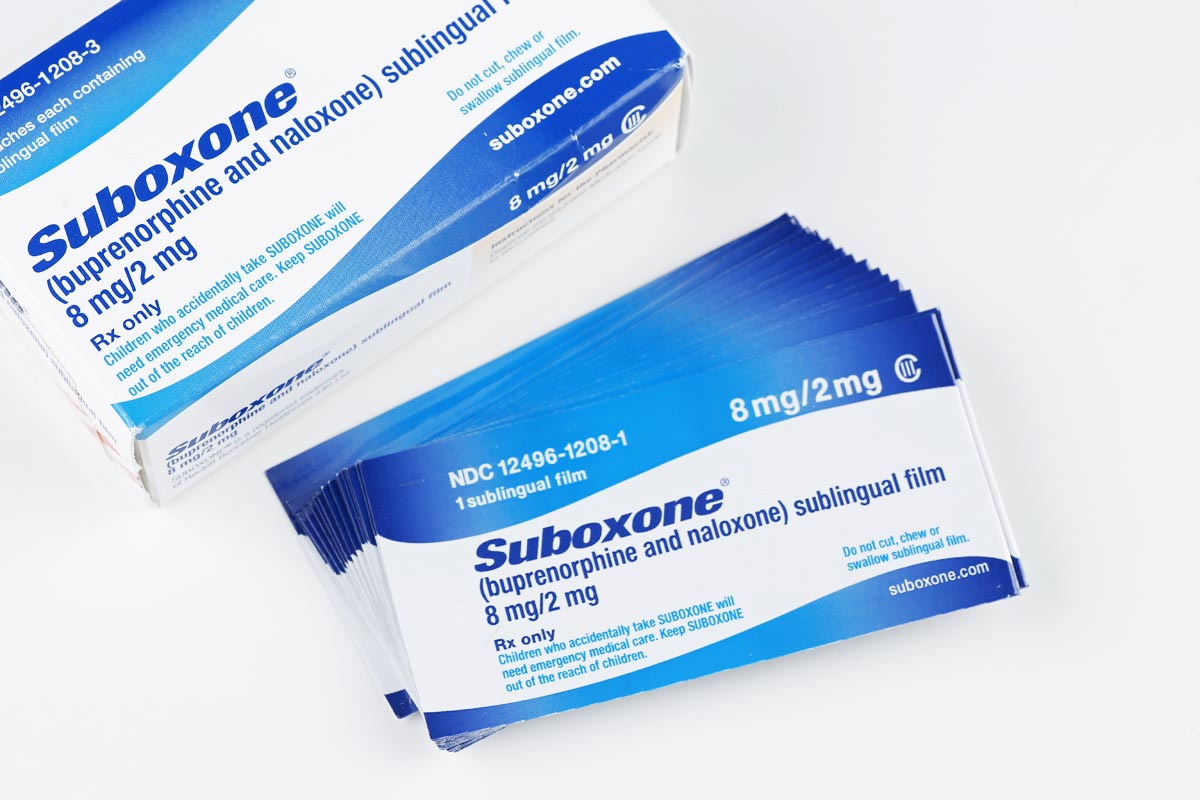 Suboxone is an important drug that helps people to recover from substance abuse.
Suboxone is an important drug that helps people to recover from substance abuse. If you’re on it, you’re probably on a long-term maintenance plan, which can extend anywhere from 6 months to 2+ years. For many, that period is about building coping mechanisms, working to improve mental health, and improving the life skills you need to live a happy and healthy life without drugs.
If you feel like you’re ready to get off suboxone, there are definitely ways to do that. However, it should always start by involving medical professionals.
Sometimes it’s the right time to quit suboxone, sometimes it’s not. Here, it’s important to remember that Suboxone is a prescription medication. It’s safe to use it for the duration of the prescription, in accordance with the prescription. Many people decide to try to quit suboxone early in their treatment, not because they’re ready, but because there’s a lot of stigma around using a drug to recover from an addiction. You might be hearing things like “you’re not really clean” or “you’ve just swapped one addiction for another”. That stigma can be insidious, but you shouldn’t let it get in the way of you’re working towards a full recovery.
Suboxone or buprenorphine is something like a crutch. You use it to help you with your recovery until you’ve healed and are well enough to continue without it. You wouldn’t not use a crutch because it means you’re not really recovering from a broken leg. You shouldn’t do that with maintenance medications either.
You might be ready to quit your Suboxone prescription if you’ve completed your rehab program and you’re 6-12 months into successful aftercare and recovery, if you consistently attend self-help group meetings like NA or AA, if you find yourself enjoying life and look forward to your days, you’ve completed the steps of your original recovery plan, you’re continuously working on behavioral health and problems highlighted by therapy, and you’ve successfully completed the original term you were recommended to be on Suboxone.
That’s a lot of conditions. However, getting off of Suboxone will take time, effort, and it will make you vulnerable to relapse. It’s important that your headspace is in the right place, that you’ve built up the support networks and behavioral support you need to stay clean and sober, and that you’re actively participating in the treatment that will keep you in recovery.
 If you’re planning to quit Suboxone, it’s important to talk to your doctor and your counselors. Discuss any negative symptoms you might be having. You might also want to discuss your reasoning for quitting as well as the reasons you think you’re ready. Your doctors might not agree with your decision. In this case, it’s highly recommended that you actually stop and consider whether they’re right or not.
If you’re planning to quit Suboxone, it’s important to talk to your doctor and your counselors. Discuss any negative symptoms you might be having. You might also want to discuss your reasoning for quitting as well as the reasons you think you’re ready. Your doctors might not agree with your decision. In this case, it’s highly recommended that you actually stop and consider whether they’re right or not.
At the same time, asking for a tapering program is often a good idea because otherwise you might be left on Suboxone for years. It’s not unusual for maintenance programs to continue near indefinitely. Therefore, if you think you’re ready, you should ask.
 Suboxone is dependence inducing, just like other opioids. If you try to quit it all at once or go cold turkey, you will experience significant withdrawal symptoms and you will be vulnerable to relapse. A tapering program allows you to slowly cut down on your dosage over time, so that you slowly get off the drug. That normally means halving your dose every 2-4 weeks – until you’re taking so little that you can easily quit it with barely any side effects.
Suboxone is dependence inducing, just like other opioids. If you try to quit it all at once or go cold turkey, you will experience significant withdrawal symptoms and you will be vulnerable to relapse. A tapering program allows you to slowly cut down on your dosage over time, so that you slowly get off the drug. That normally means halving your dose every 2-4 weeks – until you’re taking so little that you can easily quit it with barely any side effects.
At the same time, it’s important to ensure you have medical monitoring during this point. Any form of withdrawal, even a tapering program, causes changes and discomfort. You will experience some withdrawal symptoms, You’ll also be more vulnerable to relapse than at any point since before going on Suboxone. Having a medical professional to check up on you, to respond in case of severe symptoms, and to hold you accountable for your recovery can be important for your ongoing recovery.
In some cases, you might have a rapid tapering schedule instead of a long one. Here, the doctors will taper your dose by cutting it in half every few days or about every week. This aligns with the primary withdrawal symptoms starting to reduce – which means your body has adjusted to the reduced dose.
It’s important that your suboxone tapering program include medical and mental health monitoring. Here, it’s a good idea to continue visits to your therapist or counselor. You might also want to touch base with your rehab facility or a halfway house to get extra support during the process. For example, some people prefer to move into a sober house to ensure they get support during the tapering program and that they minimize the possibility of relapse as much as possible. Not everyone needs this extra level of support, however, everyone should have basic monitoring, checkups every few days, and the option to at least call a sponsor or counselor if things get bad.
If you think you’re ready to quit Suboxone, you might be right. Asking your doctor and anyone involved with giving you the prescription is a great first step. From there, it’s also important to take steps to continue your aftercare, to continue therapy, and to hold yourself accountable for staying on track. Suboxone is a crutch, moving on without it could be more challenging than you think. If you’re ready to quit, you’ve built up the tools to help you through those challenges. But, at the same time, it’s important to make sure you can still recognize when and if you need help.
That means being ready to reach out to a therapist, it means continuing to go to groups, it means being ready to go back into rehab if you slip up, and it means being honest with yourself and your friends. Getting off suboxone is one step in your journey to recovery, it’s not the end of the journey. Hopefully, you now have everything you need to continue that journey without medication assistance. Good luck quitting suboxone.
Asana Recovery provides a full continuum of highly effective drug rehab and alcohol rehab programs. If you have questions for yourself, or your loved one, contact us today to speak in complete confidence with one of our experienced and caring addiction treatment team.
© Copyright 2024 Asana Recovery™
| All Rights Reserved | Privacy Policy
Asana Recovery | Headquarters | 1730 Pomona Ave Suite 3, Costa Mesa, CA 92627, United States
Asana Recovery
We firmly believe that the internet should be available and accessible to anyone, and are committed to providing a website that is accessible to the widest possible audience, regardless of circumstance and ability.
To fulfill this, we aim to adhere as strictly as possible to the World Wide Web Consortium’s (W3C) Web Content Accessibility Guidelines 2.1 (WCAG 2.1) at the AA level. These guidelines explain how to make web content accessible to people with a wide array of disabilities. Complying with those guidelines helps us ensure that the website is accessible to all people: blind people, people with motor impairments, visual impairment, cognitive disabilities, and more.
This website utilizes various technologies that are meant to make it as accessible as possible at all times. We utilize an accessibility interface that allows persons with specific disabilities to adjust the website’s UI (user interface) and design it to their personal needs.
Additionally, the website utilizes an AI-based application that runs in the background and optimizes its accessibility level constantly. This application remediates the website’s HTML, adapts Its functionality and behavior for screen-readers used by the blind users, and for keyboard functions used by individuals with motor impairments.
If you’ve found a malfunction or have ideas for improvement, we’ll be happy to hear from you. You can reach out to the website’s operators by using the following email
Our website implements the ARIA attributes (Accessible Rich Internet Applications) technique, alongside various different behavioral changes, to ensure blind users visiting with screen-readers are able to read, comprehend, and enjoy the website’s functions. As soon as a user with a screen-reader enters your site, they immediately receive a prompt to enter the Screen-Reader Profile so they can browse and operate your site effectively. Here’s how our website covers some of the most important screen-reader requirements, alongside console screenshots of code examples:
Screen-reader optimization: we run a background process that learns the website’s components from top to bottom, to ensure ongoing compliance even when updating the website. In this process, we provide screen-readers with meaningful data using the ARIA set of attributes. For example, we provide accurate form labels; descriptions for actionable icons (social media icons, search icons, cart icons, etc.); validation guidance for form inputs; element roles such as buttons, menus, modal dialogues (popups), and others. Additionally, the background process scans all the website’s images and provides an accurate and meaningful image-object-recognition-based description as an ALT (alternate text) tag for images that are not described. It will also extract texts that are embedded within the image, using an OCR (optical character recognition) technology. To turn on screen-reader adjustments at any time, users need only to press the Alt+1 keyboard combination. Screen-reader users also get automatic announcements to turn the Screen-reader mode on as soon as they enter the website.
These adjustments are compatible with all popular screen readers, including JAWS and NVDA.
Keyboard navigation optimization: The background process also adjusts the website’s HTML, and adds various behaviors using JavaScript code to make the website operable by the keyboard. This includes the ability to navigate the website using the Tab and Shift+Tab keys, operate dropdowns with the arrow keys, close them with Esc, trigger buttons and links using the Enter key, navigate between radio and checkbox elements using the arrow keys, and fill them in with the Spacebar or Enter key.Additionally, keyboard users will find quick-navigation and content-skip menus, available at any time by clicking Alt+1, or as the first elements of the site while navigating with the keyboard. The background process also handles triggered popups by moving the keyboard focus towards them as soon as they appear, and not allow the focus drift outside it.
Users can also use shortcuts such as “M” (menus), “H” (headings), “F” (forms), “B” (buttons), and “G” (graphics) to jump to specific elements.
We aim to support the widest array of browsers and assistive technologies as possible, so our users can choose the best fitting tools for them, with as few limitations as possible. Therefore, we have worked very hard to be able to support all major systems that comprise over 95% of the user market share including Google Chrome, Mozilla Firefox, Apple Safari, Opera and Microsoft Edge, JAWS and NVDA (screen readers).
Despite our very best efforts to allow anybody to adjust the website to their needs. There may still be pages or sections that are not fully accessible, are in the process of becoming accessible, or are lacking an adequate technological solution to make them accessible. Still, we are continually improving our accessibility, adding, updating and improving its options and features, and developing and adopting new technologies. All this is meant to reach the optimal level of accessibility, following technological advancements. For any assistance, please reach out to